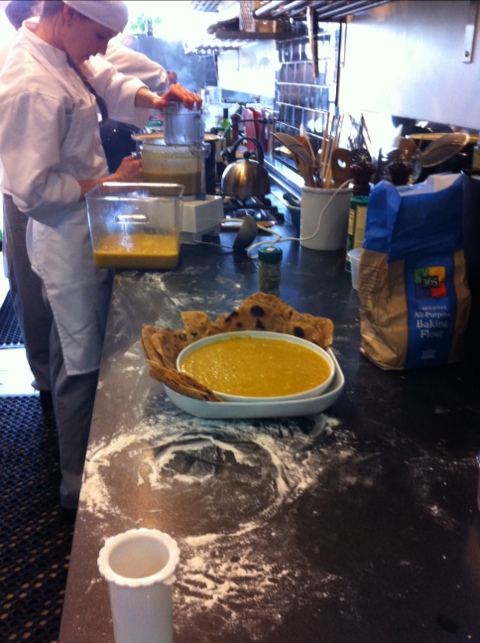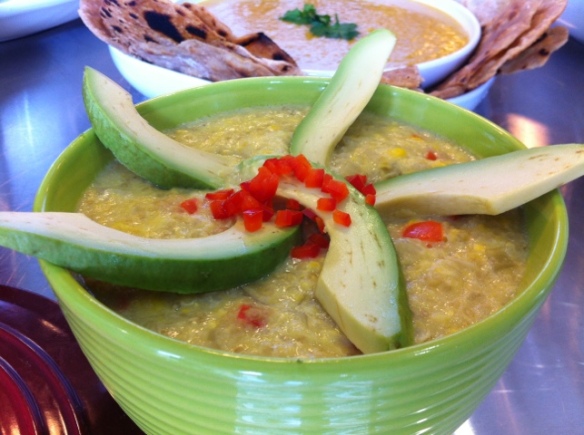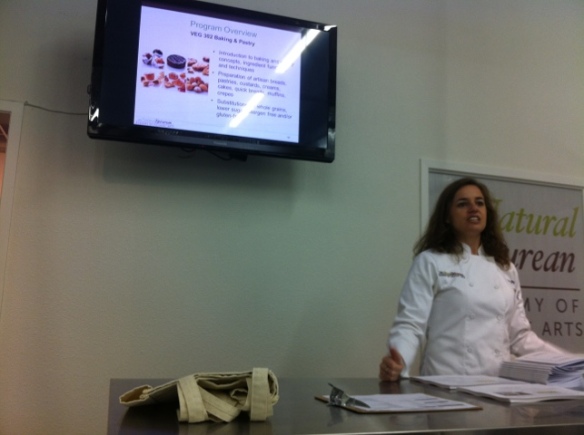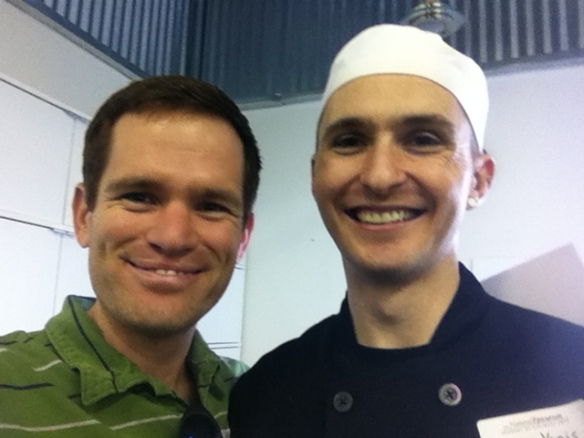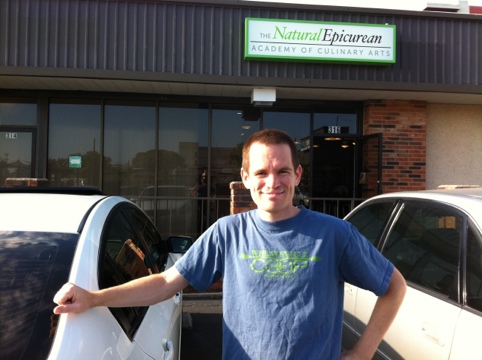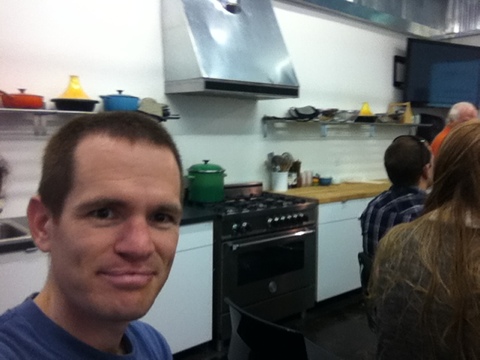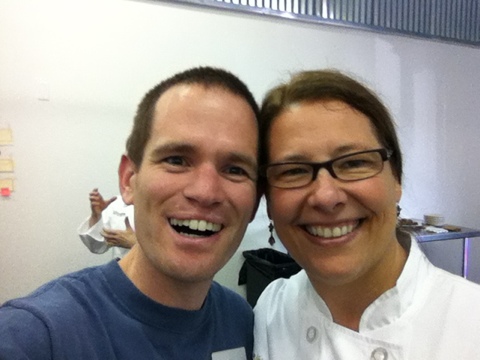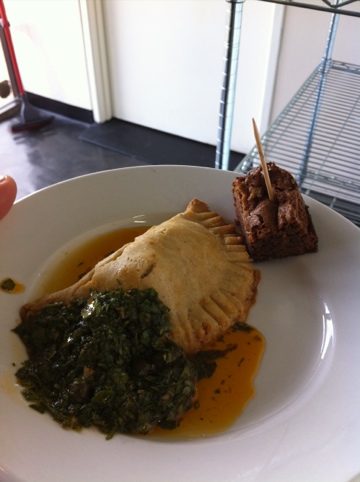The school invited a few local food professionals to come talk to us last Friday and I just love these talks because they give me a chance to hear about what like is like in the “real world” (a world I will quickly become part of). For someone like me, who is looking to change careers totally, this information is really vital. The school leaders chose a good group of people – Sylvia Heisey, owner of Austin raw food restaurant Beets, Kara Kroeger, a nutritionist/personal chef, and Rebecca Saltsman, volunteer director for the Sustainable Food Center in Austin.
Sylvia Heisey
Sylvia, the owner of Beets Cafe, gave us a realistic picture of what it’s like to open a restaurant – draining your savings, cost overruns, time crunches, waiting three years to achieve a monthly break even cash flow, not paying yourself, etc. It truly sounds like it is a labor love for Sylvia, who has a passion for raw food. She also wants to do food HER way, so she’s had to stay focused and committed to her vision. Sylvia take the business side of restaurant operations very seriously, which is probably why she is still in business and will likely achieve whatever goals she establishes. (See my blog post on Beets from December 2011.)
Kara Kroeger
Kara Kroeger, a certified nutritionist and a personal chef, was a real inspiration. At each step in her career journey, she really followed her heart and pursued her goals. And each step seemed to carry her closer to where she is today, which is a busy professional who seems to be truly helping improve the lives of others, which pretty much describes the goals of at least half of the class at The Natural Epicurean. I found myself feeling kind of jealous of Kara, who is my age but who has really followed her own heart her entire life and who is a really self-directed person with boatloads of confidence and knowledge.
Kara, who like me decided not to pursue a degree in dietetics because of her feelings about the inadequacy of Western medicine, shared a number of helpful suggestions for us that she learned during her journey:
- Trust that you are in the right place at the right time
- Listen to your intuition
- Try as many things as possible
- People are disenchanted with the healthcare system (I’m not the only one!)
- If you want to learn something, teach it
- Collaborate with others in your professional work
- Connect with as many people as you can
- Show an interest in people
Rebecca Saltsman
Rebecca Saltsman shared information with us about the mission and programs of the Sustainable Food Center, an Austin non-profit built to (1) develop more local agriculture (2) bring that agriculture to people and (3) show people how to use local, nutritious foods in their cooking. The Sustainable Food Center runs four farmer’s markets in Austin.



